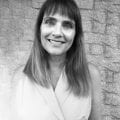

Focusing is an embodied form of self-inquiry that asks us to be curious and gentle with our inner selves. It is a simple, yet deeply nuanced way to asking inside. When I taught this elegant method to a group of Jungian therapists, a woman from the audience came up to me after and said Gendlin had found a beautifully simple way to access the unconscious through the body.
While I would have loved to agree with her wholeheartedly, I was stopped by the word ‘unconscious’ because Gendlin objected to it. He said it sounds as if we might have suffered a blow to the head. Of course the Jungian sense of the word refers to the vast storehouse of content that operates under the level of conscious awareness. But even here, Gendlin would disagree, saying that we do, in fact, have a physical sense of the whole underground world that is influencing us. It is simply implicit until we make it explicit. This is an update on the notion of making the unconscious conscious.
Many years ago, I wrote an article called The Inner Journey: Focusing and Jung (Ellis, 2014) that describes how Gendlin’s notion of the implicit advances Jung’s. The following is an excerpt:
In any good crossing, the cumulative effect is always greater than the sum of its constituent parts, and I have found this to be the case in combining Jungian and Focusing- oriented therapy. The methods complement, enrich and deepen each other: Gendlin brings experiential depth and ‘life-forward’ movement with his focus on the body, while Jung brings imaginative richness and numinosity with his deep fascination with the image.
The ‘unconscious’ as incomplete process
I will begin with a brief theoretical note because it has a bearing on how one might go about crossing Jungian and Focusing-oriented practices. It concerns the notion of the ‘unconscious’ which was treated, at the advent of the practice of psychotherapy as a great storehouse of hidden content that needed to be unearthed or ‘made conscious’ if the patient were to heal. The importance to psychology of Freud’s and Jung’s discovery and elaboration of the theory of the unconscious cannot be overstated. However, as with most theories, it is a helpful but imperfect lens through which to view the psyche, and I would suggest that Gendlin’s revision of this theory adds to its value.
Gendlin does not view the unconscious the way Freud or Jung conceived of it. He wrote, “When ego or self-systems are said to exclude some experiences from awareness, usually it is assumed that these experiences nevertheless exist ‘in the unconscious.’ Our discussion, however, leads us to the conclusion that they do not. Something exists, to be sure, but it is not the experiences as they would be if they were optimally ongoing” (Gendlin, 1964, p. 24). Gendlin stated that what exists instead is a narrowed or blocked interaction or experiencing, an interrupted or unfinished condition, in short, an incomplete process.
Gendlin continued: “The felt datum which is there, in a sense, contains everything. In what sense does it? In the sense that, given fully carrying forward responses to it, everything will be here as aspects of ongoing process” (Gendlin, 1964, p. 25). Later in the same article Gendlin described the difference between content and process more simply: “Content theories assume that one completes the process of knowing, experiencing, interpreting, reacting but that some of this process does not reach awareness. The present theory holds that the process does not completely occur” (1964, p. 38).
As an example, suppose something unfortunate happens to my friend ‘Susan’ and a few days later she comes to realize, maybe in talking it through with me, that she feels angry about it. Gendlin argued that to have a strong feeling and then bury it is less plausible than the notion that one was aware of something, maybe a physical tension or a feeling of dissatisfaction that “must be responded to and carried forward. Only thereby does the process go to completion and anger” (p. 38). In the example, it is more likely that Susan did not fully experience and then repress or forget her anger, but rather that she had not yet fully felt the anger; it was there as a potential not yet developed fully.
How might this be useful in practice? This revised theory would still allow for the idea that thoughts, conclusions and actions that would result from explication, but which are vaguely felt as unacceptable, may be blocked and not be carried through. Gendlin would say these do not then become ‘unconscious’ (i.e., completely unavailable to our senses) but rather they become implicit, unfinished processes that are held in the body in some form such as somatic sensations, general anxiety, tension or other symptoms. The point Gendlin (1964) stresses is that these pieces of unfinished process are in awareness, even while their full meaning is not. This is where Focusing can help move the situation forward because it invites the person to welcome what is implicit, and then allow it to fully develop. Once the felt sense is carried forward, there will be a sense of remembering, as though what came was already known. To fully articulate the truth of the situation can come as a great relief, even if the truth is painful. (p. 83-85)
You can read the entire article for examples and more ideas about how to integrate Focusing and Jung. Since writing it, I have developed these ideas further, in particular in the field of dreamwork. In addition, in my decades of clinical practice using these tools, I developed deeply imaginal ways to work with implicit, embodied trauma, both personal and collective. To me, Gendlin’s work is a lost gem that complements Jungian approaches to dreams and the implicit realm beautifully.
References
Ellis, L. (2014). Fousing and Jung. The Folio: Journal of Focusing and Experiential Therapy, 25(1).
Gendlin, E. T. (1964). A theory of personality change. In Worchel, P. & Byrne, D., (Eds.), Personality Change, pp. 100-148. New York: John Wiley & Sons.
Join Dr. Leslie Ellis in the course Focusing and Dreamwork, where you’ll learn how to use the focusing and embodied dreamwork methods of Eugene Gendlin to reach into a wider way of knowing. Witness how life-changing it can be to sense inward, find what’s present and discover that “something new” that wants to come forward: enroll here!
Our other courses with Dr.Ellis, an expert in dreamwork, include How to Work with Dreams in Your Clinical Practice and Nightmares and Anxiety Dreams in Times of Crisis.

Leslie Ellis
Dr. Leslie Ellis, PhD, is an author, teacher, speaker and clinical dreamworker. Her book, A Clinician’s Guide to Dream Therapy (Routledge, 2019) offers therapists a primer in modern, experiential dreamwork.
More Posts by Leslie EllisComments are closed
Comments are closed.